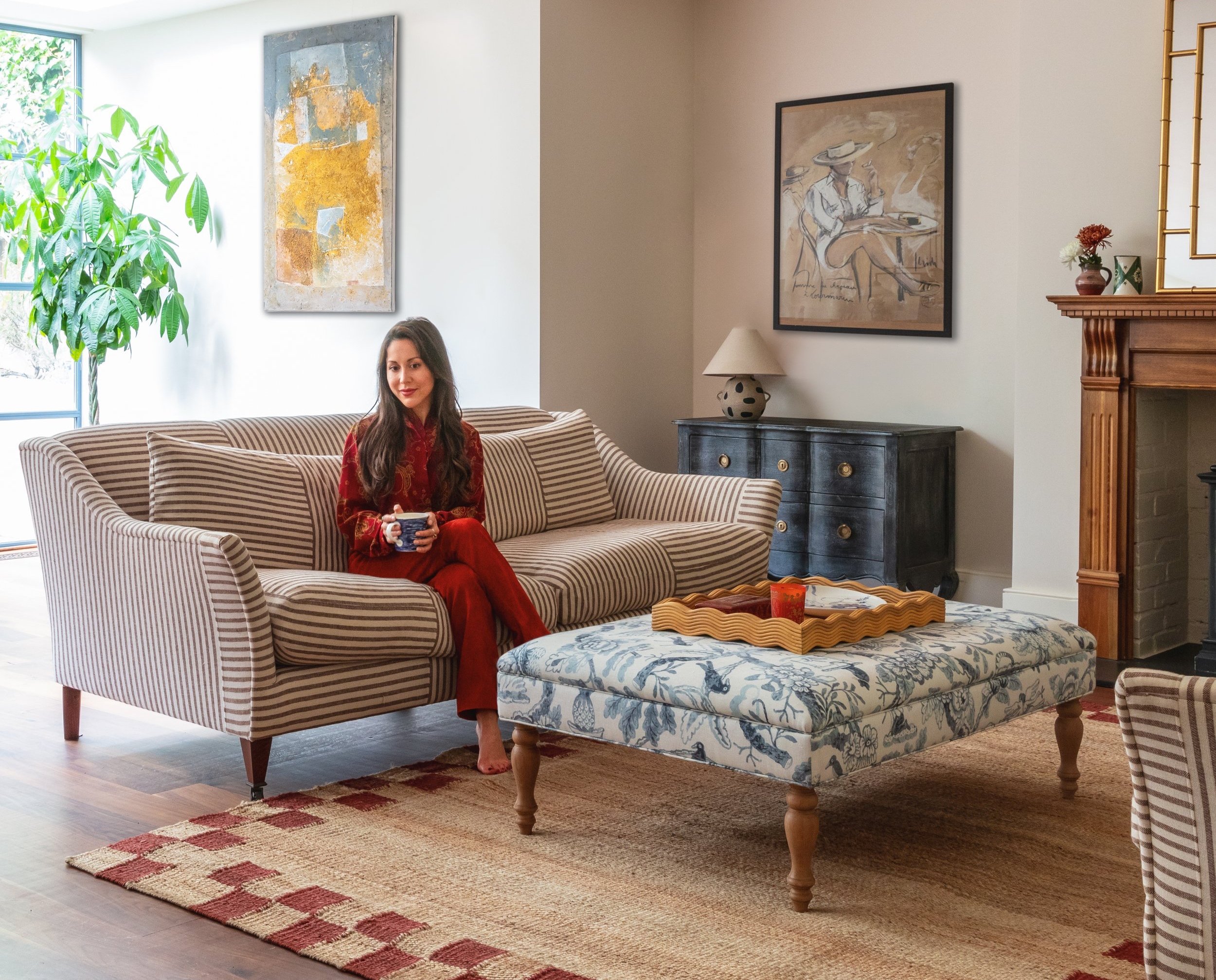Make Do & Mend
As Christmas edges closer and a New Year is on the horizon I’ve been thinking about the theme of ‘Make-do & Mend’ and how it translates into our homes, along with the connected themes of care and restoration. This theme was partly inspired by a rather ravenous moth that ignored most of my wardrobe and descended on my precious year-old wool and cashmere coat (I’m told they love quality).
If you’re at all like me, I’m sure the treasured possessions in your home can cause occasional pernicketiness too. Although if you have children or pets you’ve probably learnt to let go of such inclinations for the sake of your own sanity! I know house training my puppy George was a baptism of fire (and wee!) The truth is, the passage of time, and all the activity and joy experienced, is inherently aging and this applies to the life of our homes too. Floorboards wear, paint gets chipped, worktops become stained, and fabrics become worn...or moth eaten!
Whilst there’s a certain lived in charm to a little wear and tear sooner or later pieces in our home inevitably require a spot of care and attention. I’ve noticed in recent years almost all the homeowners I work with are keen to restore, repair and renew existing features during a renovation. Whilst cost is occasionally a partial factor most often it comes down to an appreciation of resourcefulness, sustainability, and creativity.
Existing wooden floors are frequently sanded and reoiled, well made joinery spruced up with fresh paint and handles, upholstery restuffed and recovered, stone floors resurfaced and existing fixtures such as shower screens and sanitaryware kept if they’re in good nick and work well layout wise.
Technicolour Dreamboat: Living Room
Our most recent project ‘Technicolour Dreamboat’ is a great example of the Make-do and Mend ethos. Alongside a host of new additions, several existing features were thoughtfully renewed to blend the old seamlessly with the new. The hardwood floors were sanded and reoiled, the solid wood shaker kitchen was modified, repainted, and new hardware added, the sink in the cloakroom was retained and the newish sofa from the family’s previous flat was spruced up with fresh soft furnishings. Needless to say a handful of vintage and reclaimed pieces made an appearance, including. a gorgeous mid-century Spanish sunflower mirror from Lordfords and a pair of art nouveau handles from The Old Cinema!
Mid-century sunflower mirror (Lordfords)
Restored kitchen cabinetry
Without further ado, here are my key recommendations:
1. Buy well. By this I don’t mean you should necessarily buy the most expensive or from the most prestigious retailer but rather to keep quality and longevity in mind if you’re keen to invest in pieces that will last. As a rule, good quality materials are easier to restore so before committing to a purchase it makes good sense to question how easily the item you have in mind could be cared for or repaired.
Mid-century chairs from Provence (1stDibs)
2. Maintain. It is perhaps common sense but regular care and attention goes a long way. Creating a home with longevity means putting a little love into maintenance and looking after the pieces you have. This isn’t just about practicality—it’s about preserving the integrity of a home and curating a story over time. The homes we love most aren’t necessarily the ones that are perfect (if such a thing exists), but the ones that feel layered, characterful and well looked after.
3. Spring and Autumn inventories. To welcome fresh energy and maintain upholstery and furnishings these times of year lend themselves to deep cleaning and decluttering rituals. Think professionally cleaning carpets and rugs, sending bedding and cushions to the dry cleaners, and cleaning curtains and blinds. As rugs, furnishings and window treatments are often some of the larger expenses in a redecoration making these things part of a change of season ritual helps to keep them looking their best and these elements can often last decades with a little TLC! I
*As a side note, popular sisal, jute and seagrass rugs (as shown in the accompanying images) are averse to liquids so steam cleaning or any other water-based cleaning is best avoided (bicarb of soda is a good if imperfect remedy for spills). Silk curtains and cushions are also averse to water so steam cleaning is best avoided on these too. If in doubt, call a professional and don’t risk a DIY disaster!
Custom window treatments and bay seating
Custom details on the bay seating
4. Annual Inventories. Every year it’s worth doing a top to toe review of paintwork, flooring, cabinetry and surfaces (e.g. countertops). As a general rule of thumb, paint work and wood flooring need repainting and refinishing every 4-5 years or so but in the intervening periods you may wish to do a bit of light touching up to minor nicks and scuffs and reoil your wooden floor. Wooden furniture and features such as doors and staircases, as well as, spot areas of wear on wooden floor may benefit from a professional French polish or other specialist restoration e.g. to remove water stains or to fill deep scratches.
Technicolour Dreamboat: Kitchen
5. Occasionally, as with my winter coat, you might need to invest in a new piece (or at least new to you) for your home. If so, return to point 1. :)
Reclaimed art nouveau handles (The Old Cinema)
Rustic dining table (Devols) and mid-century dining chairs (1st Dibs)











